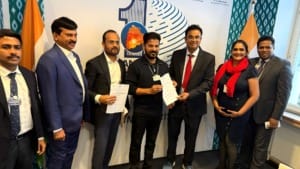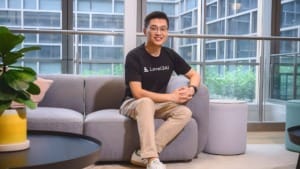Colossal CEO reassures public: No plans for a real-life Jurassic Park
Colossal’s CEO denies plans for a real-life Jurassic Park while working on de-extincting species like the woolly mammoth.

The CEO of Colossal, a startup dedicated to bringing extinct species back to life using genetic engineering, has assured the public that the company has no intention of creating a real-life Jurassic Park. CEO Ben Lamm addressed concerns at the SXSW festival in Austin on March 10 while discussing the company’s ambitious projects.
“Modern conservation isn’t working […], and we’re going to need a ‘de-extinction’ toolkit,” Lamm said during an onstage interview with actor and board member Joe Manganiello. He stressed the ethical responsibility of using technology to reverse some of the damage humans have done to ecosystems.
Colossal is currently working on reviving species such as the woolly mammoth, the dodo bird, and the Tasmanian tiger, also known as the thylacine. However, despite the excitement around de-extinction, bringing back dinosaurs would not be possible due to these ancient creatures’ lack of viable DNA.
The science behind Colossal’s mission
Based in Dallas, Texas, Colossal was founded in 2023 by Lamm and renowned geneticist George Church. The company has set a goal to produce woolly mammoth hybrid calves by 2028 and reintroduce them to the Arctic tundra. Additionally, Colossal is leading research efforts to reintroduce Tasmanian tiger joeys into their native habitats in Tasmania and Australia after a controlled period in captivity.
The startup’s groundbreaking work has caught the attention of investors, with Colossal securing hundreds of millions of dollars in venture capital. The company is now valued at US$10.2 billion. Colossal has also spun off two companies dedicated to specific research applications, with a third venture yet to be announced.

Lamm believes the future of “re-wilding” extinct species and carbon sequestration could be worth billions. One of Colossal’s recent projects, the gene-edited “woolly mouse,” has demonstrated early progress. This new mouse species, which features long, thick fur similar to a mammoth, was developed using a combination of mammoth-like and known mouse hair-growth mutations.
While some experts have questioned the woolly mouse’s significance in terms of de-extinction, Lamm defended the experiment, stating that it confirmed Colossal’s approach to mammoth genetic editing.
The future of genetic engineering
During his interview, Lamm touched on the potential of artificial intelligence and synthetic biology. He described these advancements as “the most dangerous set of technologies the world has seen”. Still, he predicted a future where they could cure cancer, remove plastics from the ocean, and make clean water widely available.
“We will have true dominion over life, where we can eradicate invasive species or bring back lost species,” Lamm said. He also predicted that plants could be engineered for food and contain different types of proteins for various uses.
Looking ahead, Lamm suggested that humanity could reach “longevity escape velocity” within the next 20 years, extending human lifespans significantly and making immortality a theoretical possibility. He also proposed a large-scale initiative, similar to the Manhattan Project, to preserve endangered species by storing their genetic material in “bio vaults.”
Lamm hinted at discussions with a government that is “excited” about the concept, though he did not name the country. He also confirmed that Colossal meets with U.S. government agencies quarterly and has received government support, likely through grants.
As Colossal continues its ambitious journey into de-extinction, its work raises ethical, environmental, and scientific questions about the future of genetic engineering and conservation.
















